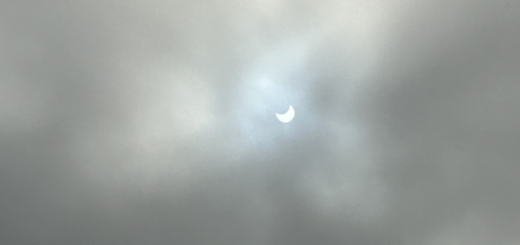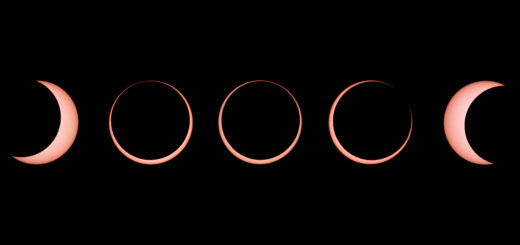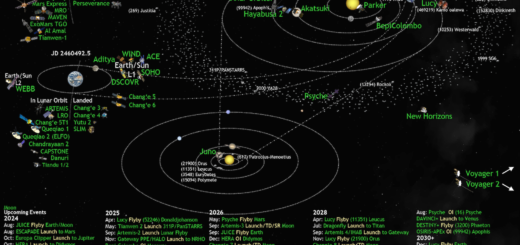Dark Shadow: An Eclipse on Jupiter
I know, it’s been quiet around here. I’m a community college professor, and the end of the semester is always busy. It’s a great job, and I’ll write about how I made the choice to teach full-time someday. For now, I want to share with you how serendipitous timing when touring the solar system in our college’s planetarium allowed our class to observe an eclipse on another world.
A shadow falls
There is a lot of excitement for the upcoming April 2024 total solar eclipse. When I discuss eclipses with students and planetarium show audiences, I’m frequently asked if eclipses can occur on other worlds. The answer is yes! Let me show you.
I’m lucky to teach astronomy in my college’s planetarium. When I take my astro students on a tour of the solar system, the Sun, planets, moons, rings, asteroids… everything is where it should be for the date and time. So, this is what we saw when we flew to Jupiter this semester:
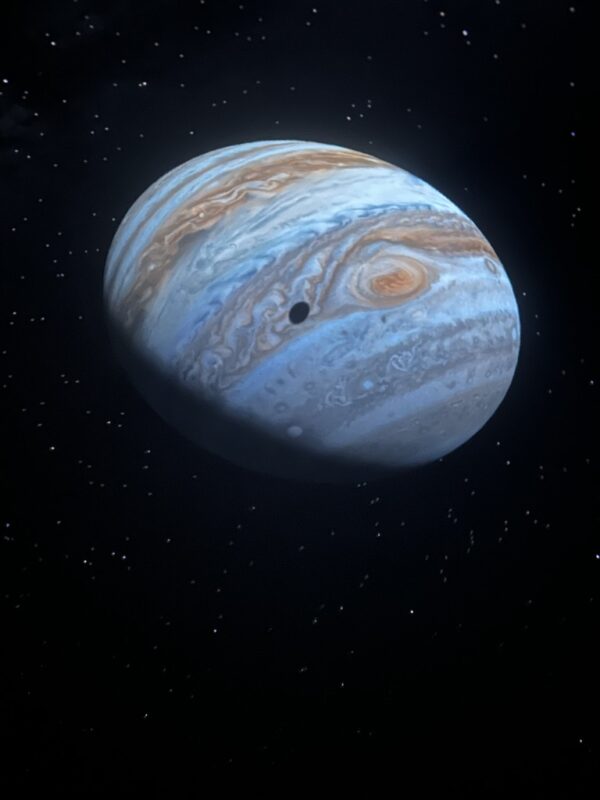
Immediately I could hear the students talking: What is that black spot? Is that a shadow? What is causing that shadow? Is that what an eclipse looks like from space? All great questions, right? And because we were in a planetarium, we could figure out the answers together.
An answer revealed
Because of the size of the shadow, it would have to be from one of the Galilean satellites of Jupiter: Io, Europa, Ganymede, Callisto. They are Jupiter’s four largest moons, discovered by Galileo in 1610. Io is the one closest to Jupiter, making it the most likely candidate to cause this particular shadow. Our planetarium software allows us to show the “shadow cones” due to large astronomical objects, so I turned the shadow cone on for Io. This is what we saw:
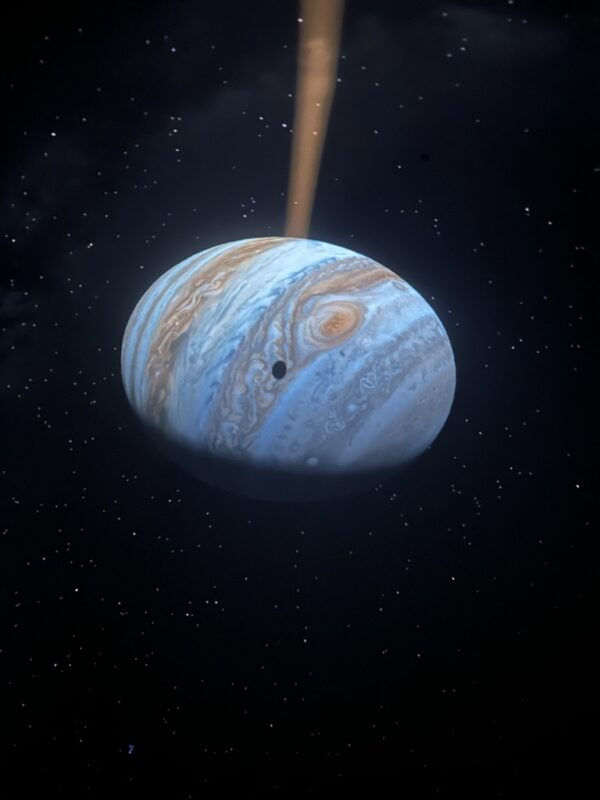
Then we flew to Io, to see what the eclipse would look like from the moon’s point of view:
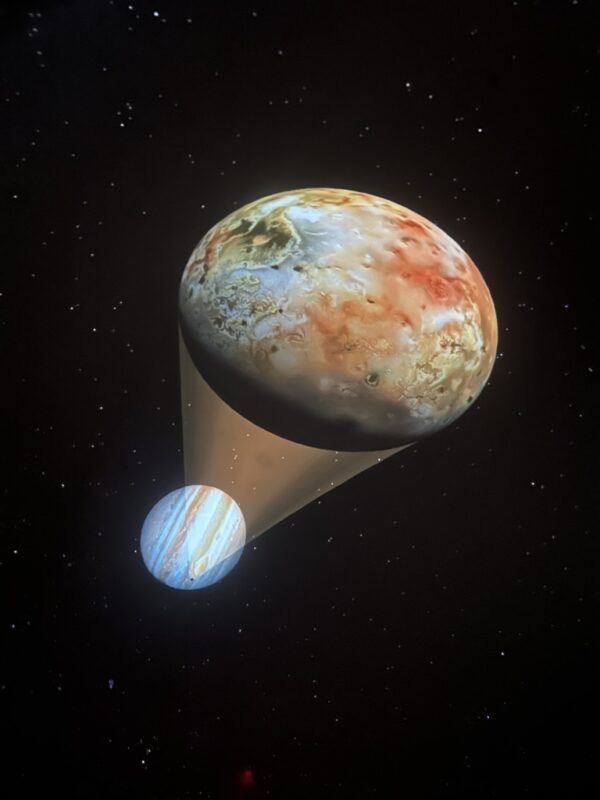
From our point of view, we are observing Io’s shadow transiting Jupiter, but if you were within that shadow cone, you’d be observing a solar eclipse.
(Note: I took these images with my cell phone aimed up at the planetarium dome. Our planetarium is a Spitz SciDome HD running Starry Night.)
Isn’t that amazing? And it shows the power of teaching astronomy with a planetarium. Hope you’ve enjoyed coming along for the ride!
If you’re interested in eclipses, check out this link: https://lisawillspace.com/category/events/upcoming-eclipses/

